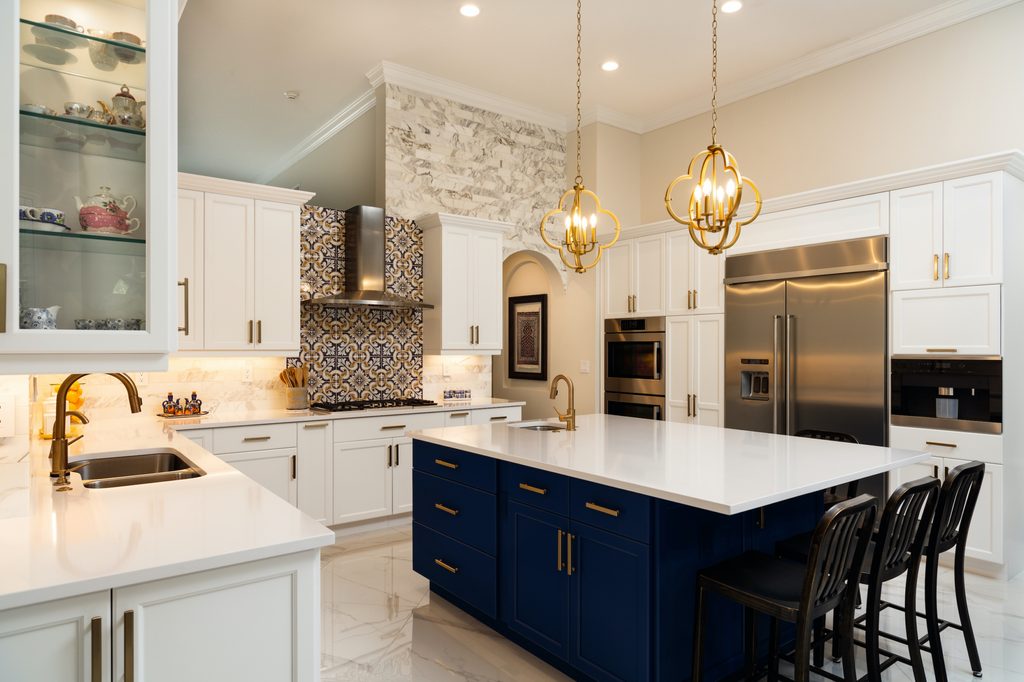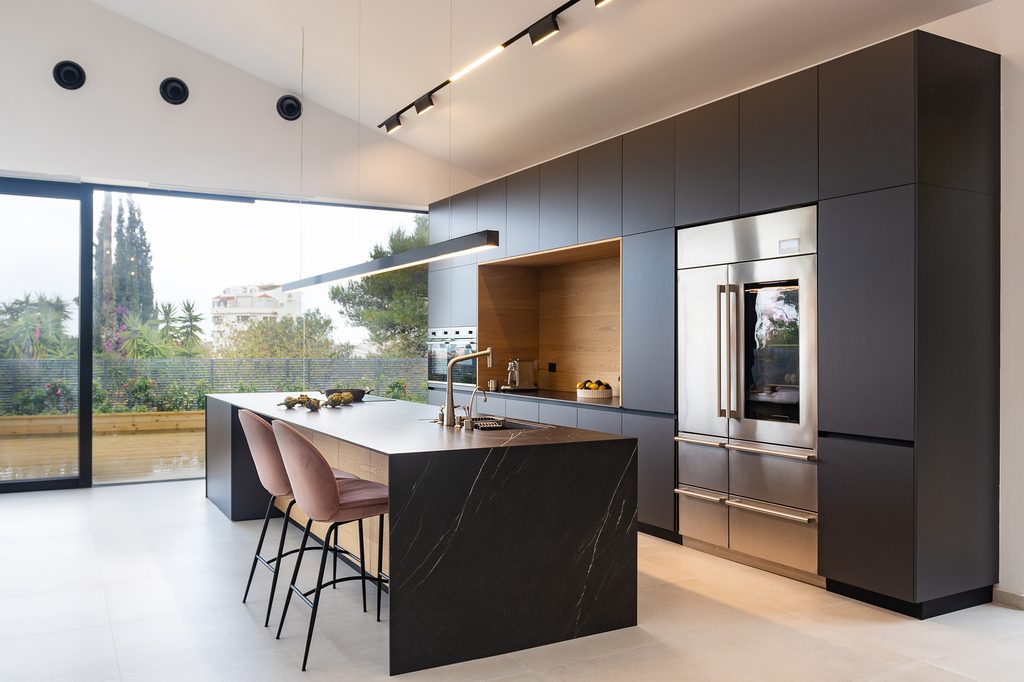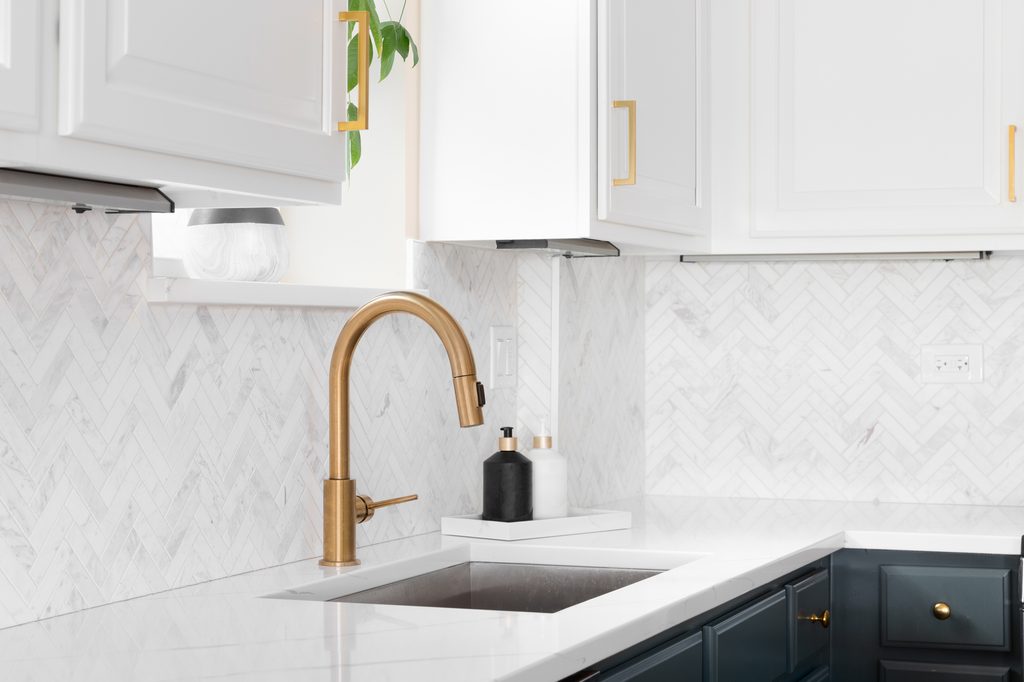
Marble countertops add an exquisite touch to many modern homes. However, this gorgeous stone isn’t without its faults. Today, we’ll discuss the pros and cons of marble countertops to help you make the right decision for your space.
Benefits of having marble countertops

There are several benefits to having marble countertops in your kitchen. Let’s explore them.
Aesthetics
The allure of marble countertops makes them a highly sought-after addition to many kitchens nationwide. With various colors, patterns, and veining, marble counters offer homeowners a chance to customize their space and create luxe aesthetics.
Houses with minimalist, farmhouse, glam, and modern interiors find marble to be a wonderful addition to the kitchen. Black marble is particularly enticing for many modern enthusiasts. Some marble also has shimmery or deep-toned veining, making it more appealing to potential buyers if you’re looking to sell.
Heat and cooking tolerant
Marble countertops are fairly durable if properly sealed. They’re great for all types of cooking and are easy to clean. Marble is heat tolerant, but don’t place hot pans directly on the counters. While marble is somewhat durable, it’s not completely heat resistant, and high heat or hot pans can damage the surface.
Adds value to the home
Marble is a luxe, high-end stone for kitchen countertops, making it a great choice for homeowners looking to boost their resale value. While there is no guarantee that marble will help boost your equity, it can help create a classier look to your space that many buyers crave.
Longevity
Marble is a natural stone known for its longevity. According to Arch City Granite & Marble, Inc., marble has been known to last for more than 50 years. Many experts also assert that if properly maintained, marble can last a lifetime. However, marble is prone to dents, scratches, and other blemishes or damages. It isn’t the strongest or most durable countertop material. Regular polishing and sealing can help you maintain the stone and keep it in pristine condition.
Disadvantages of marble countertops

Each countertop choice has its faults, and marble is no exception. Find out the drawbacks here.
Porous
The greatest difficulty with owning marble countertops is maintaining them and preventing any staining from spills. If spills occur, it’s best to work quickly to clean up the mess to prevent staining. Avoid using acidic substances directly on your marble countertops. Additionally, dark spills such as wine should be cleaned quickly. If you do find a stain on your counters, a mix of rubbing alcohol and water with a few drops of dish soap can help.
Not scratch resistant
Marble is durable, but it’s not an entirely scratch-resistant material. If acidic liquids come into contact with the counter, this can dull the shine and damage the seal. Infrequent sealing and polishing might also make your countertops prone to scratches or etches.
Heftier price tag
Marble countertops are a high-end choice for the kitchen. The stone costs anywhere from $40 to $100 per square foot. Additionally, depending on the size and scope of the project, as well as paying any contractors or laborers for installation, you may expect to pay anywhere from $1000 to $10,000 on marble countertop installation.
Marble countertops offer a luxurious look and feel to many kitchens. Homeowners adore the unique veining and the modern appeal of this stone. While it can require consistent maintenance, marble is a stone meant to last a lifetime, making it a popular choice in many kitchen designs.




